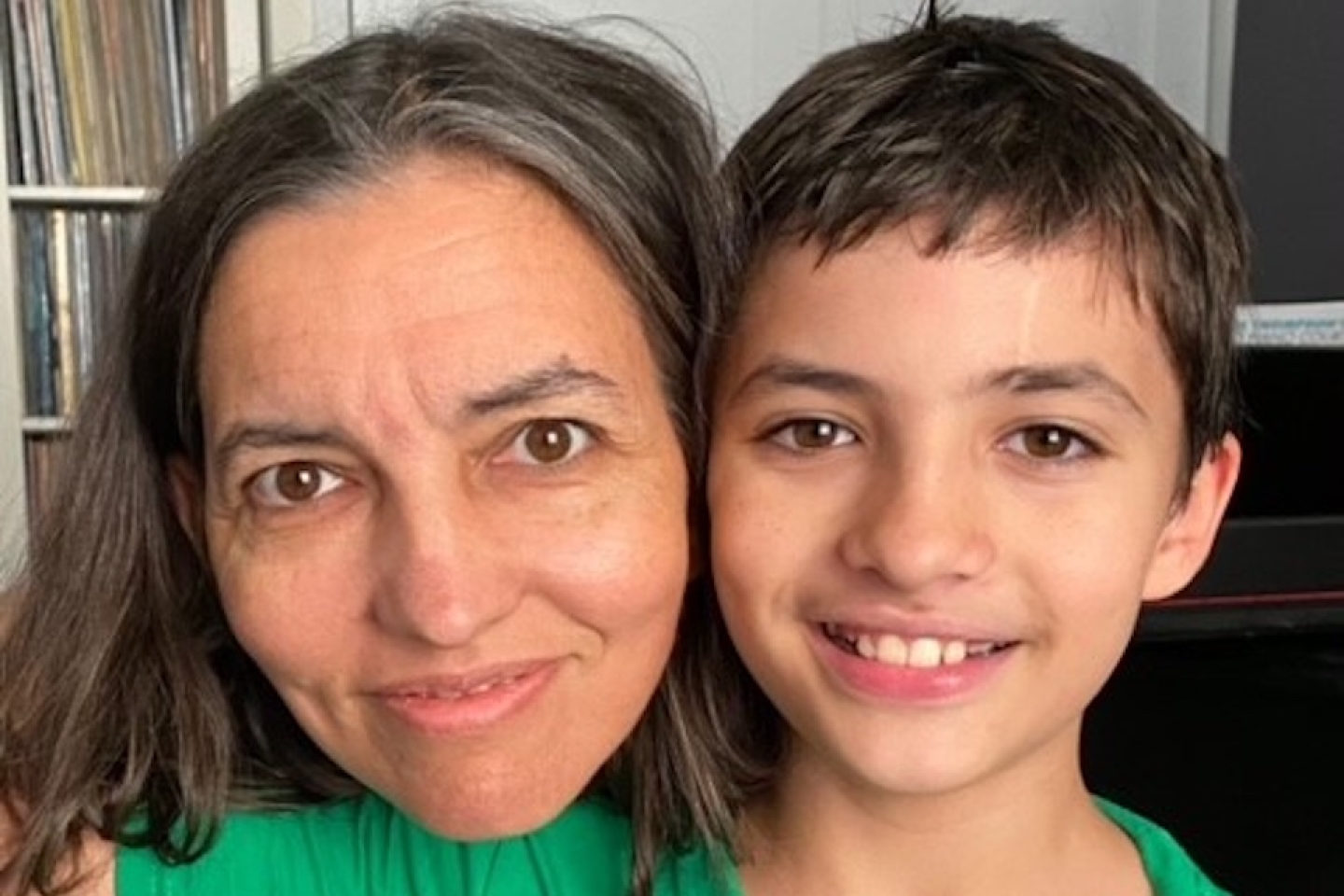
Luka Zylik is one busy and talented 10-year-old.
He loves to sing, dance and act. He attends a music school in New York City where he plays the violin and piano and performs in the Metropolitan Opera Children's Chorus.
Without a doubt, Luka is a flourishing fifth grader, thanks to his exceptional care team at Weill Cornell Medicine and his mother’s determination to make sure he has always been in the best hands.
“Over the years, there have been ups and downs,” says his mother, Mariela Pellegrini. “Now we are in such a happy place.”
In 2012 at NewYork-Presbyterian Hospital, Mariela gave birth to Luka, her first child, after a long and difficult labor in which Luka’s heart rate dropped. The remarkable compassion and care from her doctors and nurses during that harrowing experience inspired her to join Weill Cornell Medicine in 2012 as an employee.
“I changed jobs because I fell in love with Weill Cornell Medicine when I delivered Luka there,” says Mariela, who works in administrative computing.
She didn’t know it then, but Luka was also at the beginning of his journey with Weill Cornell Medicine. When Luka was an infant, Mariela sensed something was not quite right. He vomited a lot as a baby and didn’t sleep or eat well.
When Luka was nine months old, Mariela learned that he hadn’t grown from his previous pediatrician's visit, and her intuition told her to take action.
She started taking him to Weill Cornell Medicine pediatric gastroenterologist Dr. Thomas Ciecierega and then to Dr. Oksana Lekarev, a pediatric endocrinologist, to investigate why he was growing slowly.
“Initially, he just had weight gain and eating issues,” recalls Dr. Lekarev. “As he got older, we started thinking about growth hormone deficiency a little more.”
Although Luka was growing consistently, he was much shorter than his peers. People would assume he and his younger brother were twins.
“I have two sons that are eighteen months apart, and they are the same size,” Mariela says.
Earlier this year, Luka underwent a series of tests for growth hormone deficiency, a condition in children that occurs when the pituitary gland in the brain doesn’t produce enough of a particular chemical that prompts the body to grow.
The tests, which included multiple blood draws, confirmed that Luka did have a growth hormone deficiency. After his diagnosis, the next step was an MRI to check his pituitary gland. To put Luka at ease during the MRI, the radiology team turned to the MRI-am-a-Hero! Program, which outfitted him in superhero pajamas and gave him a special device so he could watch a movie during the procedure.
Meanwhile, there was a new worry on the horizon for Mariela as she waited to hear if the insurance company would cover the cost of growth hormone treatment for Luka. Without insurance coverage, growth hormone therapy, which biological males typically undergo until their bone age is 16, can cost tens of thousands of dollars a year.
Our care teams have expertise in helping patients apply for these critical medications. Seema Akrami, a specialty pharmacy liaison, assured Mariela she would handle the insurance request. When the first application was denied, Seema applied several more times until it was finally approved.
“The day she called to tell us they approved it, I was jumping up and down,” Mariela recalls.
Still, there was one more obstacle to overcome. The MRI also revealed a cyst on Luka’s pituitary gland. Mariela took Luka to neurosurgeon Dr. Jeffrey Greenfield and was relieved to learn it didn’t require immediate intervention, and the care team continues to monitor the cyst.
Meanwhile, over the past several months, Luka has been taking daily growth hormone injections. To help himself overcome his fear of needles, Luka wrote a song about it.
“I want to grow, so I made a pact, for a daily shot, and step up my act,” he sings in a touching YouTube video while playing the piano.
Whenever he has been afraid, his care team at Weill Cornell Medicine has always found ways to calm him.
“I feel like they’ve helped me a lot with all these treatments,” Luka says. "I’m just really thankful.”
At a recent doctor’s visit, he learned that he has grown 1 ½ inches since starting treatment last summer.
Dr. Lekarev says she is proud of Luka and hopeful he will continue to do well.
“He is such a great kid and has handled this like a champ,” she says, adding that the ultimate goal is to get kids to reach their genetic potential in height and be within a normal range.
As for Luka's take on his journey, he is excited about the future.
"I feel happy that I'm finally growing more," he says, "and maybe not be as tall as my classmates, but at least be something closer. I just feel good."